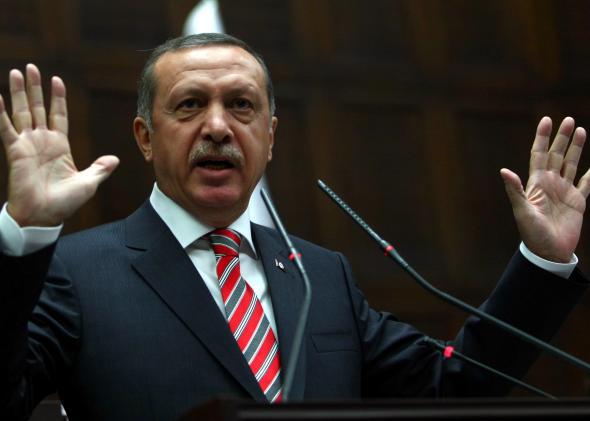A new Human Rights Watch report documents what the organization says was a massacre by Syrian opposition forces in the Latakia region on Aug. 4:
Eight survivors and witnesses described how opposition forces executed residents and opened fire on civilians, sometimes killing or attempting to kill entire families who were either in their homes unarmed or fleeing from the attack, and at other times killing adult male family members, and holding the female relatives and children hostage. At the time of writing, according to opposition sources, over 200 civilians, the vast majority of whom are women and children, continue to be held by the Islamic State of Iraq and Sham (ISIS) and Jaish al-Muhajireen wal-Ansar, groups that led the opposition offensive.[…]
Human Rights Watch has collected the names of 190 civilians who were killed by opposition forces in their offensive on the villages, including 57 women and at least 18 children and 14 elderly men (see Annex 1 for list of victims). The evidence collected strongly suggests they were killed on the first day of the operation, August 4. We identified these individuals as civilians through interviews, video and photographic evidence, or a review of hospital records. Given that many residents remain missing, and opposition fighters buried many bodies in mass graves, the total number of dead is likely higher. Human Rights Watch has documented that opposition forces executed or unlawfully killed at least 67 of these 190 civilians even though they were unarmed and trying to flee.
The report also singles out Turkey, citing claims by aid workers in the region that “foreign fighters entering Latakia governorate do so almost entirely from Turkey, even flying into Hatay airport where they are picked up by other foreign fighters and facilitators” and urges the Turkish government “increase border patrols, restrict entry of fighters and arm flows to groups credibly found to be implicated in systematic human rights violations” and “ investigate and prosecute those in Turkey suspected of committing, being complicit in, or having command responsibility for international crimes.”
The Turkish Foreign Ministry has reacted angrily to the report, with one diplomat telling Today’s Zaman “No one can apply pressure on Turkey. Turkey is carrying the responsibility of Syrian refugees and the border problems on its shoulders without the support of the international community.”
Turkey has often presented itself as the keeper of the moral high ground when it comes to Syria, expressing skepticism that the international community’s deal on chemical weapons and accusing the international community of turning a blind eye to the suffering of civilians. That position could become harder to maintain if reports like this one keep trickling out.
